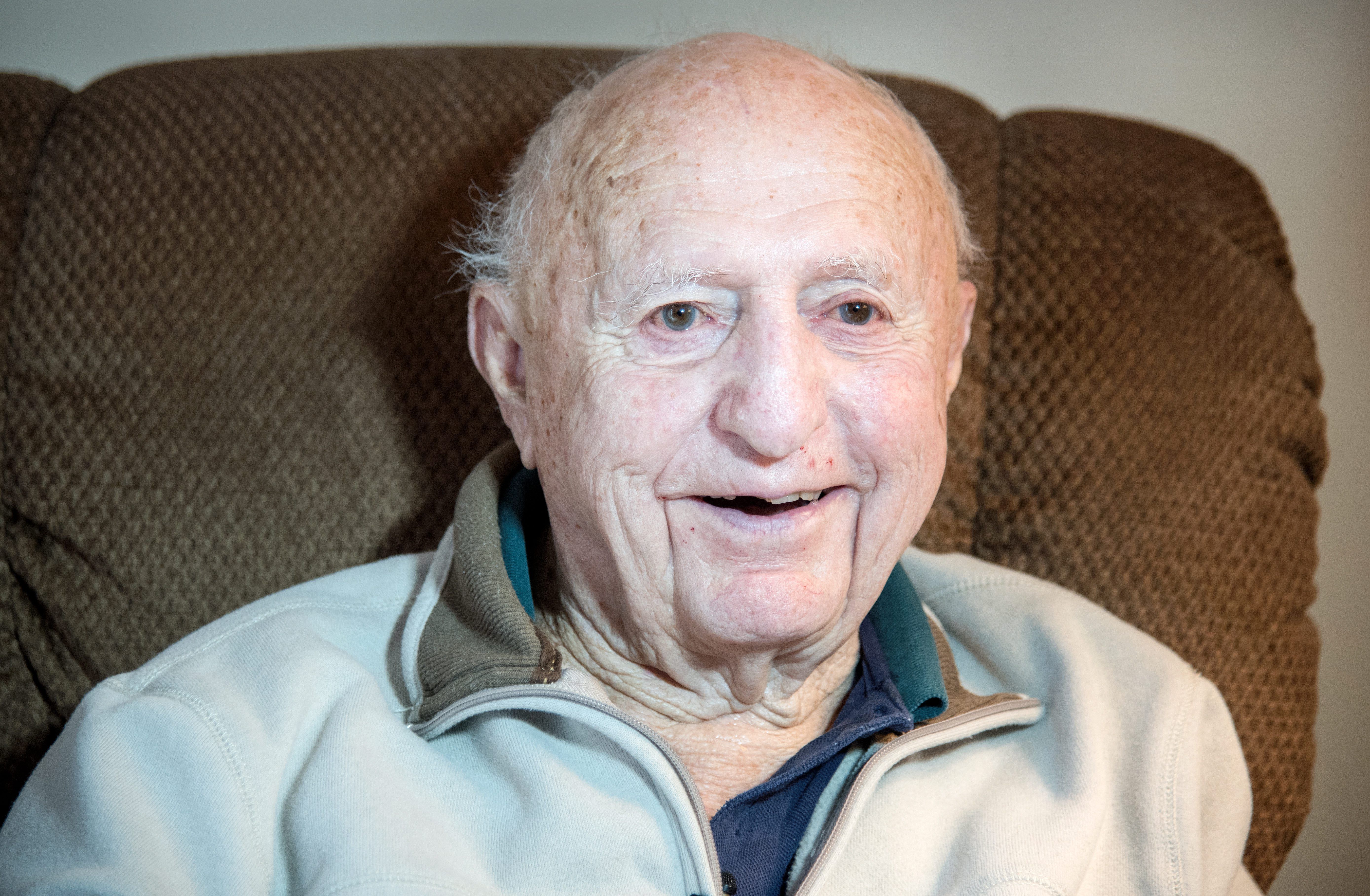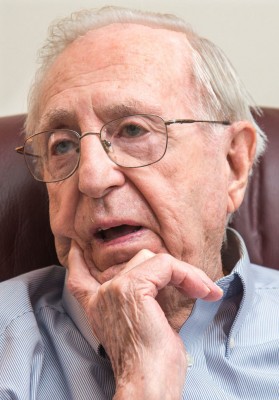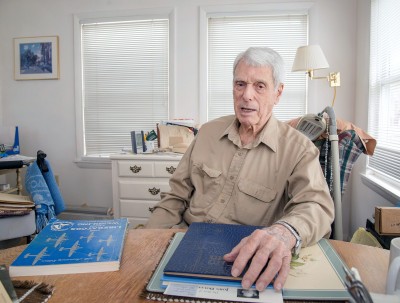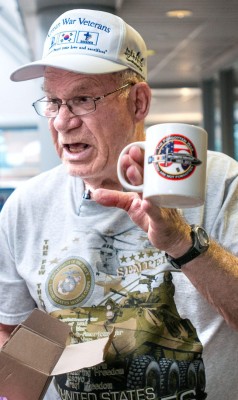Bill Lowry
By Paul Wood

Photo By Rick Danzl/The News-Gazette
SAVOY — As a medic after the Battle of the Bulge, Staff Sgt. Bill Lowry assisted in dozens of surgeries.
There were massive casualties from the German counter-offensive a few months before the end of World War II in Europe, and Lowry also helped sew up German POWs and English soldiers.
The Champaign native, who turns 93 Wednesday, says: “I wanted to get in the service right away” after Pearl Harbor.
Lowry tried to enlist in the Marines in Danville right after graduation from Champaign High in 1942, but his mother wouldn’t sign the papers.
So he ended up in the Army. He received extensive training as a medic, working with surgeons in Indiana and Virginia for more than a year.
It was Christmas Eve 1944 when he landed on the beach in France from England and was supposed to be on his way to Belgium, where fighting was heavy.
“If we’d gotten there any time earlier, we would have been overrun in the Battle of the Bulge,” he says.
He worked in old buildings and tents set up for surgeries in France mostly, near the German border, and sometimes in smaller clinics, and was glad to be able to say he wasn’t shot at — “that I know of.”
“The German snipers used to like to shoot medics,” with their distinctive red crosses on their helmets, to demoralize American troops, he adds.
You never knew what you’d see on the street, whether it was a wounded German, or a buddy.
“Once I was walking down the street, nothing going on, and there I saw Dick Ewing from Champaign,” he says.
They were high school classmates. Ewing was a glider pilot with the 82nd Airborne, and when both returned to Champaign, Ewing was also a customer in Lowry’s insurance business.
Friends kept an eye out for him through the war and months after in France.
Lowry tried to volunteer as a parachute medic, but never did get the call. It turned out his friends were erasing his name from the volunteer list every time it went up.
On the other hand, there were some soldiers who were pains in the butt.
“There was a GI in Paris who got in a fight and got cut up pretty bad,” Lowry recalls.
While Lowry was transporting him through a tunnel under the medical building, the drunk soldier told him, “When I get out of here, I’m going to kill you,” Lowry says.
“But afterwards we got everything squared away.”
Lowry stayed in France for more than six months after Adolf Hitler’s defeat.
After the war, he thought about becoming a surgeon himself.
“But I didn’t have the brains for it,” he says.
Instead, he studied business at the University of Illinois and had a long career in insurance.
He retired to Venice, Fla., where he was a commander in the VFW.
He and his late wife, Lucille, had eight children, and an Army buddy who owned a toy company used to send large cartons of toys every Christmas when they were young.
The secret of his long life?
“At 40, I quit partying,” he says, which mainly meant giving up smoking and taking up running.
For decades, Lowry ran 5 miles three days a week, though he did have the occasional beer.
He stopped running at 72. At 78, he did a tandem parachute jump.
Do you know a veteran who could share a story about military service? Contact staff writer Paul Wood at pwood@news-gazette.com.
Read more stories from local veterans:
 Clyde Hudson
URBANA — On a patrol ship, Clyde Hudson served in both the Atlantic and Pacific hunting submarines that could attack con …
Clyde Hudson
URBANA — On a patrol ship, Clyde Hudson served in both the Atlantic and Pacific hunting submarines that could attack con …
 Robert Tuchel
CHAMPAIGN — “I got shot up a lot, but I never got shot down,” says Capt. Robert Tuchel, who flew 35 missions piloting a …
Robert Tuchel
CHAMPAIGN — “I got shot up a lot, but I never got shot down,” says Capt. Robert Tuchel, who flew 35 missions piloting a …
 Sam McPheeters
MONTICELLO — Sam McPheeters dropped out of high school his senior year, drove a Harley to Denver with a buddy, got a job …
Sam McPheeters
MONTICELLO — Sam McPheeters dropped out of high school his senior year, drove a Harley to Denver with a buddy, got a job …